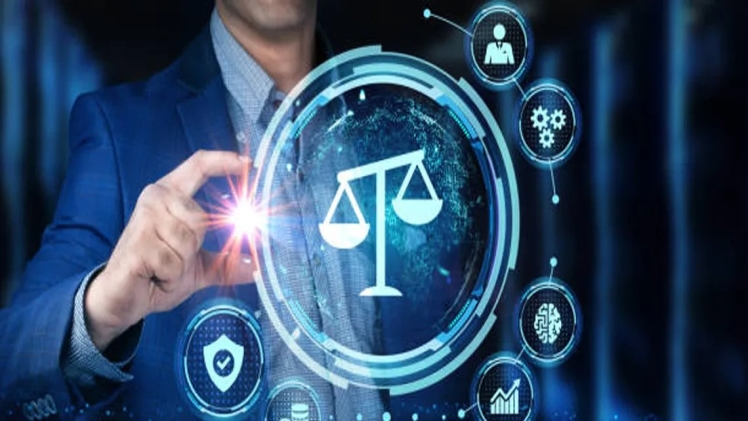Introduction:
In a world governed by laws and regulations, lawyers play a pivotal role in upholding justice, defending the rights of individuals, and navigating the complexities of the legal system. This article explores the multifaceted world of lawyers, examining their crucial functions, the diverse specialties within the legal profession, and the evolving landscape of legal practice.
Legal Education and Training:
Lawyers undergo extensive education and training to develop the skills and knowledge necessary for legal practice. This typically involves completing a bachelor’s degree, followed by a juris doctor (JD) degree from a law school.
Law school curriculum covers various aspects of the law, including constitutional law, contracts, criminal law, and more. Practical skills, such as legal research and writing, are also emphasized.
Passing the Bar Exam:
Upon completing law school, aspiring lawyers must pass the bar exam in the jurisdiction where they intend to practice. The bar exam assesses their knowledge of state-specific and general legal principles.
Successfully passing the bar exam is a crucial step for obtaining a license to practice law in a particular jurisdiction.
One of the primary roles of lawyers is to provide legal advice and counsel to individuals, businesses, and organizations. This involves interpreting laws, explaining legal rights and obligations, and offering guidance on potential courses of action.
Lawyers help clients understand the legal implications of their decisions and provide strategic advice to achieve desired outcomes.
Advocates and Litigators:
Lawyers often serve as advocates in legal proceedings, representing clients in court. Litigation involves presenting cases, examining witnesses, and making legal arguments before a judge or jury.
Litigators may specialize in various areas, such as criminal law, family law, or civil litigation, depending on their interests and expertise.
Drafting Legal Documents:
Lawyers are responsible for drafting a wide range of legal documents, including contracts, wills, trusts, and legal opinions. Precision and attention to detail are crucial to ensure that these documents are legally sound and meet the needs of their clients.
Legal drafting requires a thorough understanding of the law, as well as the ability to communicate complex legal concepts in clear and concise language.
Corporate lawyers focus on the legal aspects of business operations. They assist with business formations, mergers and acquisitions, contract negotiations, and compliance with regulatory requirements.
In-house counsel, employed by corporations, provide legal advice to the company and ensure that its activities align with legal standards.
Criminal lawyers specialize in defending individuals or entities accused of committing crimes. They navigate criminal proceedings, build defense strategies, and advocate for their clients in court.
Public defenders, employed by the government, provide legal representation to individuals who cannot afford a private attorney.
Family lawyers handle legal matters related to family relationships, including divorce, child custody, adoption, and spousal support. They guide clients through emotionally charged situations and work to secure favorable outcomes.
Mediation and collaborative law are alternative dispute resolution methods employed by family lawyers to facilitate amicable resolutions outside of court.
Environmental lawyers specialize in legal issues related to environmental protection, conservation, and sustainability. They may work with government agencies, businesses, or advocacy groups to address environmental concerns.
Environmental lawyers play a crucial role in ensuring compliance with environmental regulations and advocating for policies that promote conservation.
Lawyers are bound by a code of ethics that governs their professional conduct. This code emphasizes principles such as confidentiality, loyalty to clients, and honesty in all interactions.
Upholding ethical standards is essential for maintaining the integrity of the legal profession and building trust with clients and the public.
Client confidentiality is a fundamental ethical obligation for lawyers. Attorneys are legally and ethically obligated to protect the confidentiality of client information, ensuring that discussions and information shared remain private.
Breaches of client confidentiality can lead to professional discipline and legal consequences.
Lawyers must navigate potential conflicts of interest, ensuring that they can provide objective and unbiased representation to their clients.
Disclosing any conflicts and obtaining informed consent from clients are critical steps in maintaining ethical standards.
Technology and Legal Innovation:
Technology has significantly impacted the legal profession, with the emergence of legaltech tools and platforms streamlining various aspects of legal practice, including document review, research, and case management.
Artificial intelligence and machine learning are increasingly used in legal research, contract analysis, and predicting case outcomes.
Remote Legal Services:
The advent of remote work has also influenced the legal profession. Virtual law offices, online consultations, and electronic filing systems have become more prevalent.
The ability to provide legal services remotely has expanded access to legal representation for individuals who may face geographical or mobility challenges.





